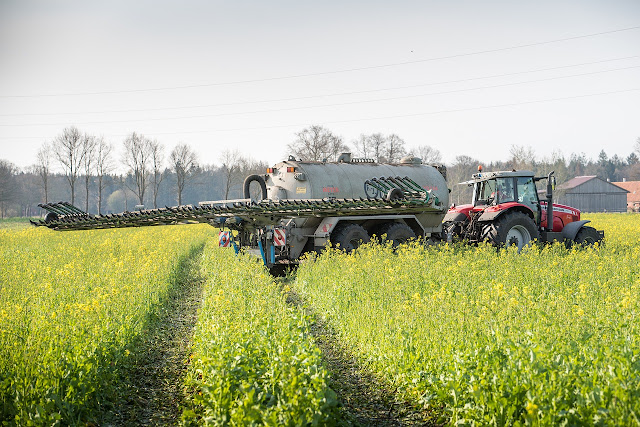Welcome to Vantika Tech, your premier destination for cutting-edge agricultural insights. Today, we embark on an in-depth exploration of crop rotation—an essential practice for sustainable farming that maximizes yield and nurtures soil health.
Introduction: Unveiling the Importance of Crop Rotation
Crop rotation is not just a farming technique; it's a strategic approach to land management aimed at optimizing agricultural output while preserving soil health. By systematically alternating crops in specific sequences over time, farmers can replenish soil nutrients, control pests and diseases, and mitigate the risk of yield fluctuations.
Understanding the Benefits of Crop Rotation
Crop rotation offers a plethora of benefits, with soil fertility and pest management standing out as primary advantages. By diversifying the crops grown in a field, farmers replenish essential nutrients, improve soil structure, and foster a balanced ecosystem where plants thrive. Moreover, by disrupting pest and disease cycles, crop rotation reduces the reliance on chemical interventions, promoting environmentally friendly farming practices.
Tailoring Crop Rotation Plans to Local Conditions and Crop Dynamics
Crafting effective crop rotation plans requires careful consideration of local climate, soil conditions, and crop requirements. Farmers must adapt rotation plans to suit regional nuances and crop-specific needs, ensuring optimal results. Whether in temperate or tropical climates, the key is to strike a balance between crop diversity and agronomic objectives.
Practical Insights for Implementing Crop Rotation
Implementing crop rotation requires thoughtful planning and execution. Here are some practical insights to help farmers integrate crop rotation successfully:
Start with Soil Analysis: Conduct comprehensive soil tests to assess nutrient levels, pH, and soil health indicators, guiding crop selection and rotation planning.
Diversify Crop Selection: Choose a diverse range of crops with different nutrient requirements, growth habits, and pest susceptibilities to maximize rotation benefits.
Develop a Rotation Schedule: Design a multi-year rotation plan that considers factors such as crop compatibility, market demand, and weed management.
Monitor and Adapt: Regularly monitor soil health, pest populations, and crop performance, adjusting the rotation plan as needed to optimize outcomes.
Seek Expert Guidance: Consult agronomists, extension agents, and experienced farmers for advice and support in implementing effective crop rotation practices.
Real-Life Examples of Crop Rotation Success
The effectiveness of crop rotation is evident in the success stories of farmers worldwide. Consider the case of John, a farmer from the Midwest. Faced with declining yields and pest pressures in his cornfields, John implemented a diversified crop rotation plan. By incorporating soybeans, wheat, and cover crops into his rotation, John witnessed remarkable improvements in soil health and pest management, leading to increased yields and profitability.
Challenges and Future Directions in Crop Rotation
While crop rotation offers numerous benefits, it also presents challenges such as increased labor and management complexity. Additionally, adapting rotation plans to changing environmental conditions and market demands requires ongoing innovation and research. However, with advancements in technology and a growing awareness of sustainable farming practices, the future of crop rotation looks promising.
Conclusion: Cultivating a Sustainable Agricultural Future
In conclusion, crop rotation is a cornerstone of sustainable agriculture, offering a pathway to improved soil health, increased productivity, and reduced environmental impact. By embracing the principles of crop rotation and implementing them effectively, farmers can cultivate resilient farms and thriving ecosystems for future generations.
Thank you for joining us on this journey to master crop rotation and advance sustainable farming practices. Together, let's cultivate a brighter future for agriculture and the planet.
#CropRotation #SustainableFarming #SoilHealth #PestManagement #AgriculturePractices








No comments:
Post a Comment